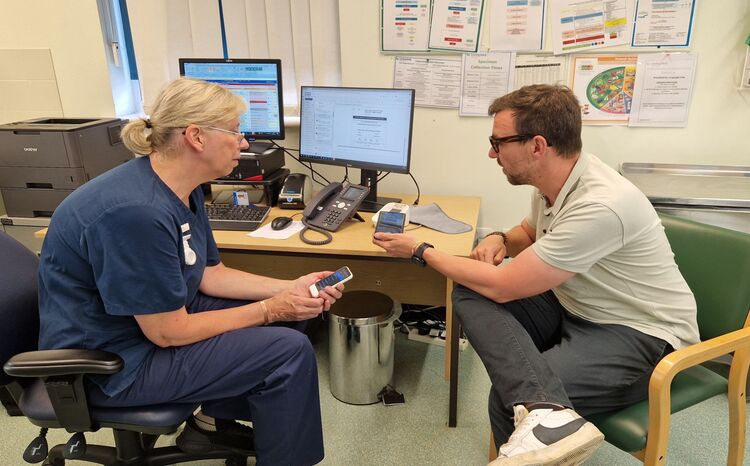eConsult CEO on the ICS impact on healthcare IT and the AI potential
- 29 April 2022

The CEO of digital triage provider, eConsult, has spoken to Digital Health News about what the introduction of Integrated Care Systems (ICSs) could mean for healthcare IT and why the company is looking towards artificial intelligence.
eConsult was originally set up as a digital triage and online consultation provider for primary care but over the last few years, the company has moved into secondary care. One of their first ventures was Queen Mary’s Hospital in Sidcup where eTriage, a system where patients self-check in and are automatically triaged by clinical need, was introduced in 2018.
Speaking to Digital Health News, Murray Ellender – who is also a GP – explained how the company began to start thinking about moving into secondary care three years ago, before Covid-19.
“We had many clinical colleagues who had experience of working in hospitals and many of them had the same experiences [as GP practices] – so we looked at whether we could test eConsult in a hospital setting,” he said.
“Our first venture into hospitals was in A&E and it’s the same idea – gathering the story from the patient ahead of them seeing the doctor or nurse.”
Breaking up digital siloes
This introduction of secondary care aligns with the formation of Integrated Care Systems (ICSs), which are due to become statutory later this year and mark a change in the way healthcare is delivered across the NHS. Ellender is hopeful that the introduction of ICSs will help break up digital siloes.
“I think Integrated Care Systems are a really good opportunity because at the moment, if you think about how the NHS is buying digital solutions, it is buying them in siloes, it’s buying digital triage in primary care, it’s starting to think about digital triage in emergency and outpatients,” he said.
“Now the risk, if you think about those siloes, is that you end up with loads of digital solutions doing slightly different things in an area.
“That’s why I think the ICSs are a really good opportunity because as areas they can start to think about digital solutions that can span both primary and secondary because actually that’s more cost effective and it offers more opportunity to start to move digital journeys around the system which is better for patient care and is probably more efficient for clinicians as well.”
Ellender added that a focus on technology by ICSs is a positive step forward.
“It is good that the Integrated Care Systems are focussing on technology as one of their enablers for their joined-up care because it absolutely is and that’s why we are thinking beyond the walls of general practice,” he said.
“We’ve now developed solutions for A&E and outpatients mindful of the fact that ICSs are coming and they are not just going to want to buy a primary care solution, they are going to want to buy something that operates across the whole health sector.”
Exploring AI
Looking ahead, Ellender says eConsult’s focus will remain on the NHS and the company will look into the capabilities of artificial intelligence (AI).
“Historically, we’ve always left the decision making with the human, so we gather information from the patient, we put it in front of a human (a doctor, nurse, or pharmacist) and they still make the decision,” he said.
“There is a real opportunity though, over the next year or two, to use some intelligence in that because we are gathering a lot of information – we can start to suggest things to the clinician to help and then over time, that leads us to be able to route patients to the right clinician.”
Ellender believes this perhaps more cautious approach is needed when it comes to deploying AI and should be done in phases.
“Its kind of layering in AI but doing it in a really step-wise way rather than just going ‘AI is the answer’, we’re saying ‘lets take our patients and clinicians on a journey and add in AI but do it in a sensible way’,” he said.
“I’d say its like the driverless car, you don’t jump straight into a driverless care but how that technology is moving is slowly moving so adding in things that support the driver, incrementally over time.
“I think AI in healthcare is similar but its further back – lets start to use intelligence to support the clinicians and the decision making and over time as trusts grow, we will let the computer do a bit more, but that is going to take a few years.”




